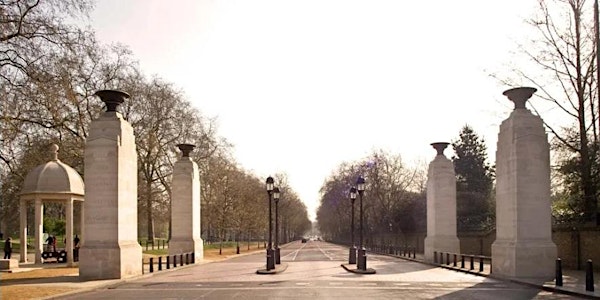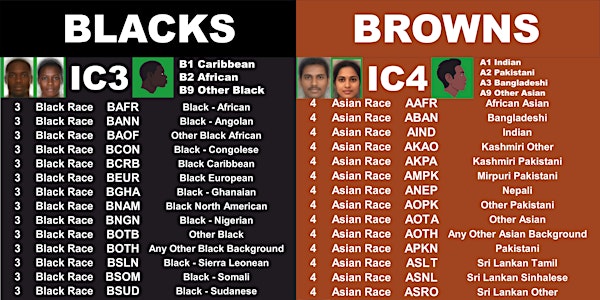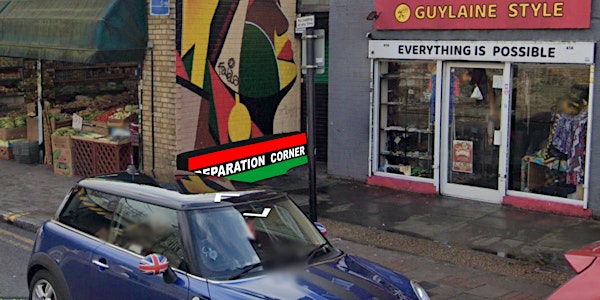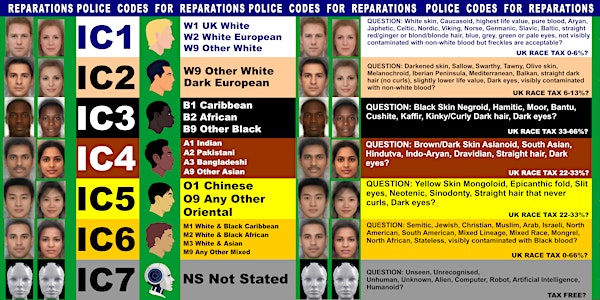





DARK-SKINNED PEOPLE SPIRIT PARTY-BREAKING THE CURSE OF HAM FOR REPARATIONS
Summoning the Black Spirits of Reparatory Justice: A Ritual at the Commonwealth Memorial Gates
Location
Commonwealth Memorial Gates
Constitution Hill London SW1A 1BW United KingdomAbout this event
Summoning the Black Spirits of Reparatory Justice: A Ritual at the Commonwealth Memorial Gates
Introduction:
In a transformative movement dedicated to historical justice and empowerment, the African Diaspora Equity and Justice Alliance (ADEJA) has emerged with a mission to address the historical inequities faced by the IC3 Black community. A unique initiative, ADEJA is set to conduct a ritual at the Commonwealth Memorial Gates, invoking the "Black Spirits of Reparatory Justice" to expedite the delivery of reparatory justice by 9 November 2025 (9/11).
The ADEJA Movement:
ADEJA, an initiative by Reparation Nation Limited, aims to create a Black African Autonomous Entity for Empowerment and Reparatory Justice. It categorizes reparations into tradeable and non-tradeable assets, emphasizing financial resources and cultural restoration. The movement aligns with the UK government's classification of race and ethnicity codes, particularly IC3 Black, and emphasizes evidence-based reparatory justice on a claim-by-claim basis.
The Curse of Ham and the Need for Liberation:
The concept of the Curse of Ham, originating from the Book of Genesis, has been historically used to justify subjugation and slavery. ADEJA seeks to break the Curse of Ham and lift the spell on dark-skinned people (IC3 and IC4) worldwide. It rejects outdated models that perpetuate racial superiority, promoting instead a vision of unity, empowerment, and historical justice.
Race and Ethnicity Codes:
ADEJA recognizes the IC codes established by the UK Government, including IC3 Black for individuals classified as Black-African. The movement challenges discriminatory ideologies that once categorized Hamitic races as superior, highlighting the discrediting of such theories in modern science.
Race and Ethnicity UK Government Codes, Office for National Statistics (ONS).
IC3 Black Race BAFR Black - African.
IC3 Black Race BANN Black – Angolan.
IC3 Black Race BAOF Other Black African.
IC3 Black Race BCON Black – Congolese.
IC3 Black Race BCRB Black Caribbean.
IC3 Black Race BEUR Black European.
IC3 Black Race BGHA Black – Ghanaian.
IC3 Black Race BNAM Black North American.
IC3 Black Race BNGN Black – Nigerian.
IC3 Black Race BOTB Other Black.
IC3 Black Race BOTH Any Other Black Background.
IC3 Black Race BSLN Black - Sierra Leonean.
IC3 Black Race BSOM Black – Somali.
IC3 Black Race BSUD Black – Sudanese.
IC4 Asian Race AAFR African Asian.
IC4 Asian Race ABAN Bangladeshi.
IC4 Asian Race AIND Indian.
IC4 Asian Race AKAO Kashmiri Other.
IC4 Asian Race AKPA Kashmiri Pakistani.
IC4 Asian Race AMPK Mirpuri Pakistani.
IC4 Asian Race ANEP Nepali.
IC4 Asian Race AOPK Other Pakistani.
IC4 Asian Race AOTA Other Asian.
IC4 Asian Race AOTH Any Other Asian Background.
IC4 Asian Race APKN Pakistani.
IC4 Asian Race ASLT Sri Lankan Tamil.
IC4 Asian Race ASNL Sri Lankan Sinhalese.
IC4 Asian Race ASRO Sri Lankan Other.
Source: British Government Ethnicity Standard Classifications. Census.
The Significance of the Commonwealth Memorial Gates:
The Commonwealth Memorial Gates, situated at the Hyde Park Corner end of Constitution Hill in London, serve as a poignant reminder of the soldiers from the Indian subcontinent, Africa, and the Caribbean who fought for Britain in World Wars I and II. Inaugurated in 2002, the gates honor the five million volunteers and bear inscriptions acknowledging the diverse contributions of nations within the British Empire.
Reasons for the Ritual at the Commonwealth Memorial Gates:
Symbolic Connection: The Gates symbolize the shared history and sacrifices of diverse communities within the British Empire, making it a fitting location for ADEJA's reparatory justice ritual.
Acknowledgment of Contributions: By invoking the "Black Spirits of Reparatory Justice" at the Gates, ADEJA aims to acknowledge the historical contributions of Black Africans, promoting awareness and understanding.
Appeal for Unity: The ritual seeks to unite individuals from different backgrounds, encouraging collective efforts to break free from historical injustices and discrimination.
Restoration of Cultural Identity: ADEJA emphasizes the restoration and preservation of cultural identity, aligning with the Memorial Gates' focus on honoring soldiers from various regions.
International Collaboration: The location's significance extends beyond national borders, promoting international collaboration for a shared vision of justice and empowerment.
Conclusion:
ADEJA's ritual at the Commonwealth Memorial Gates is a powerful expression of its commitment to historical justice, unity, and empowerment. By evoking the "Black Spirits of Reparatory Justice," the movement strives to break free from historical burdens, foster collaboration, and pave the way for shared prosperity by 9 November 2025. The Commonwealth Memorial Gates stand as a symbol of remembrance, acknowledging the past while inspiring hope for a more just and inclusive future.
#SouthAsian #Hindutva #Asian #India Bangladeshi #Pakistani #SriLankan #Dravidian #Hindus #Muslims #Sikhs #Jains #Bhutan #Indians #Maldives #Nepal #IndoAryan #Iranic #ReparationNow #Reparations #ReparationCorner #ReparationTaskForce #Tottenham #Haringey
https://www.eventbrite.co.uk/e/760797735507?aff=oddtdtcreator